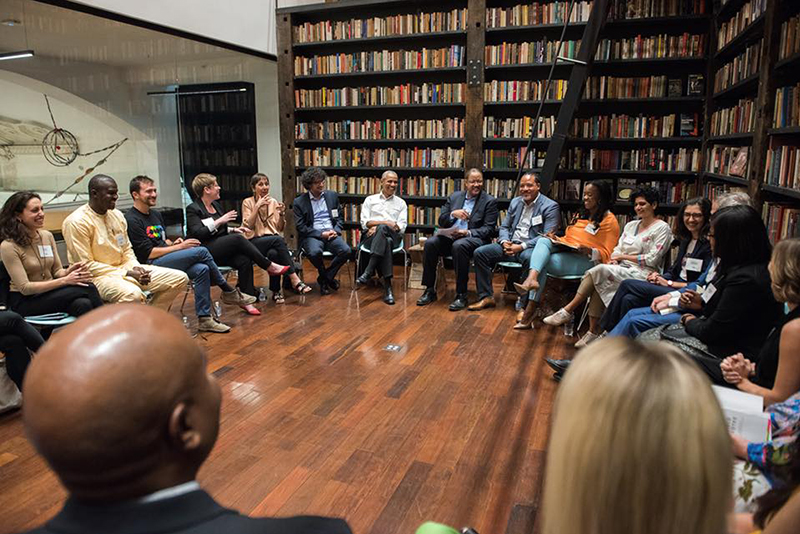Since 2010, Spark Microgrants has impacted more than 178 communities across five African nations. The non-profit works with citizens to help them identify their needs, bring them to fruition, and create a plan to sustain them. Measured in numbers, that’s more than 200,000 lives improved by projects that range from new schools to cattle-rearing cooperatives.
But for co-founder Sasha Fisher, a UVM alumna from the Class of 2005, it’s the individual stories that best share the deep impact of the work.
“I recently asked members of a village in northern Rwanda why they show up to meetings and work together,” she recounts. “A mother stood up and said, ‘Look at our facilitator, Mandela. She is a woman, and she is leading the process. I did not use to think my ideas matter, but look at me now. Our cow project idea was mine, and we are making it happen. I know my voice matters.’”
Spark Microgrant’s pioneering development model is simple: empower community members to drive development of their villages, rather than NGOs and other outside groups dictating what’s best. Spark trains a local, college-educated facilitator to guide a community through a phased approach that prepares them to make the most of their grant and ensure the project’s long-term success.
Global leader
Attention for the work is growing. Fisher was named a “30 under 30” top social entrepreneur by Forbes magazine in 2015; in 2017, the Rwandan government asked Spark to create a national scale strategy so that every village can participate; and this year, Fisher was chosen as one of the inaugural cohort of Obama Fellows, 20 civic leaders from around the world who are working with communities to build better futures.
It’s a two-year program launched by the Obama Foundation to accelerate the work of “civic innovators,” and Fisher was selected among more than 20,000 applicants from 191 countries. The fellowship features training, resources and leadership development and kicked off this summer with time to get to know each other, as well as the 44th President (pictured below, courtesy of Barack Obama’s Facebook page; Fisher is in tan on the far left).
More than the prestige of this latest accolade, Fisher is excited by the opportunities to network with, learn from and strategize together with the 19 other fellows, a group that’s committed to creating opportunities for citizens to engage in local change. “This is what our work is about in East Africa,” she says, “and now we can draw from leaders globally to improve how we serve communities and build the team.”
In pursuit of human security
From her travels to villages across sub-Saharan Africa to working alongside President Obama, Fisher takes with her the lessons she learned at UVM. She began building Spark Microgrants just two months after graduation, armed with the knowledge she pursued via her self-designed major in human security, which she paired with a second major in studio art.
“I recall my courses with Professor McMahon (in Community Development and Applied Economics), Professor VonDoepp (in Political Science) and students throughout the university deliberating on what good governance looks like beyond elections and how institutions can define behaviors,” she says, noting that these lessons manifest themselves in how Spark has structured itself as well as its work in the field. “We intentionally design for female participation and youth leadership, for example.”
Eight years in, Fisher is finding the work as gratifying as ever.
“At the same time that the world is struggling with a decline in community, a growing loneliness epidemic and deterioration of democratic process,” she says, “we get to work in strengthening community, developing social bonds, and imagining new forms of local, inclusive governance. Our work is in supporting human systems that allow communities to envision and effect change. What could be better?”
Source: UVM News

